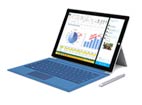It’s back to school time, and thoughts, at least of kids of this generation, turn to iPads and Chromebooks. What is different this year is that the Apple device isn’t winning all the battles.
The transition from textbooks to electronic devices, mostly tablets, in the education sector has been ongoing for several years, and the 2014/2015 school year will be no different. The advantages are compelling: Overall costs can be lower and the educational material fresher. It’s a win for the institutions and for the students.
The use of electronics in the classroom is evolving, and it is not without controversy. For a long time, Apple’s iPad was the undisputed leader in the educational device sector. That standing now is under pressure, however.
Earlier this month, The Atlantic posted a story that featured an interesting experiment in which 200 iPads and an almost equal number of Chromebooks were given to kids in the Hillsborough, N.J. school district.
The result was that the Chromebooks were favored and will be used by the school. The story says that the kids saw the iPads as entertainment vehicles and the Chromebooks as educational tools. The Chromebook’s keyboard also was a plus, since it is used on Common Core tests. Finally, IT departments like the Google device because most of the data is stored in the cloud and not the device. This makes management easier.
Another case in which Apple came up short is in Denver, where freshmen at South High School will go through their four years without textbooks. The story at the website of the ABC affiliate didn’t directly address the absence of iPads. But Kindle Fire HD Tablets are the winners. They will cost $100 per device, with parents paying $115 if they need to be replaced. The school bought 600 of the tablets.
The controversy in Los Angeles seems to mirror the small but palpable loss of standing of the iPad. The Los Angeles Unified School District was in the midst of a $1 billion multi-year project to give iPads to all its students. However, the program was suspended when it was revealed that Superintendent John Deasy and a top deputy had “close contact” with Apple and Pearson executives. Pearson is a subcontractor to Apple and is providing the curriculum for the devices.
Apple can bid on contracts with the school district going forward. The WirelessWeek story said that the problem was that the two companies were given unfair advantages:
The district report found, among other things, that the initial rules for winning the contract appeared to be tailored to the products of the eventual winners — Apple and Pearson — rather than to district needs. It said key changes to the bidding rules came after most of the competition had been eliminated.
Plenty of kids at all educational levels across the country will be using iPads this year. However, it is apparent that at least some of the market will be served by other devices.
Carl Weinschenk covers telecom for IT Business Edge. He writes about wireless technology, disaster recovery/business continuity, cellular services, the Internet of Things, machine-to-machine communications and other emerging technologies and platforms. He also covers net neutrality and related regulatory issues. Weinschenk has written about the phone companies, cable operators and related companies for decades and is senior editor of Broadband Technology Report. He can be reached at [email protected] and via twitter at @DailyMusicBrk.



